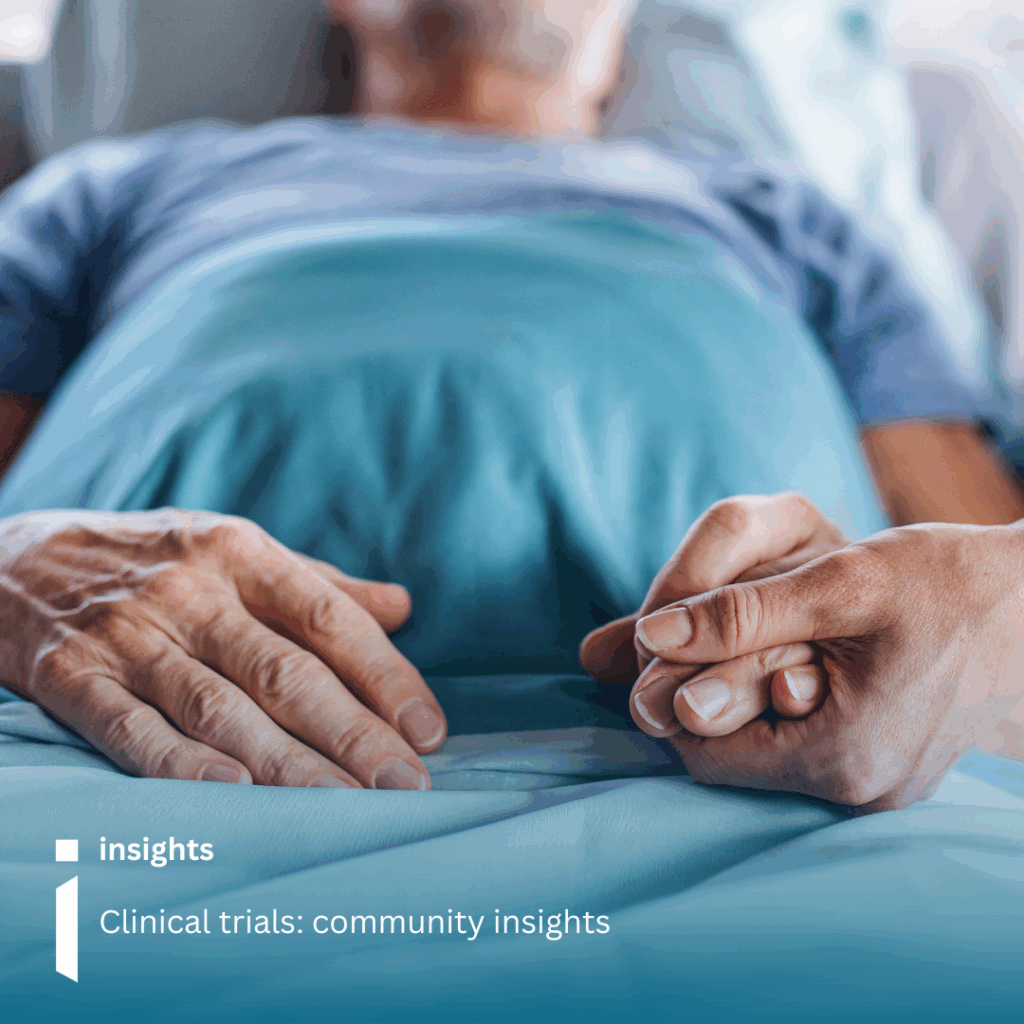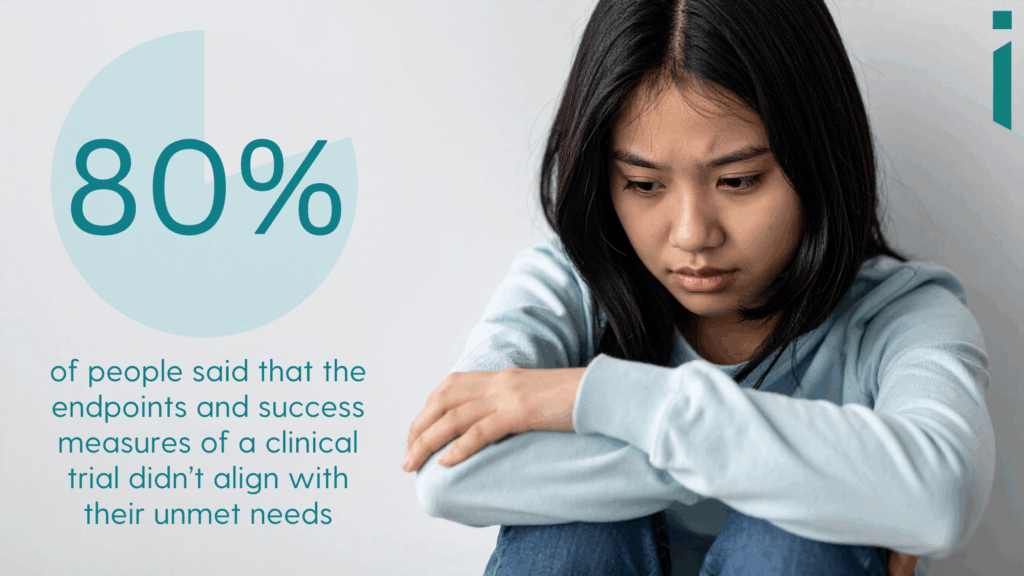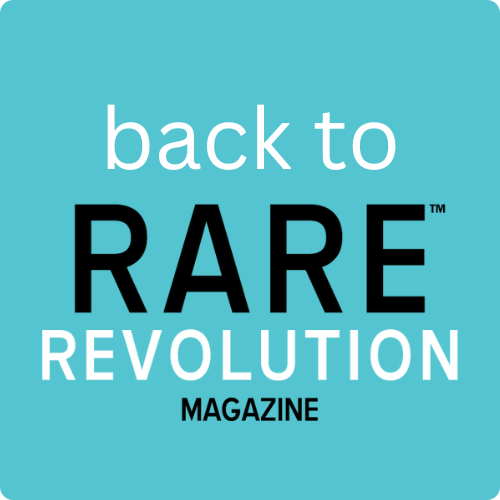RARE Revolution poll reveals patient needs are worryingly overlooked in clinical trials
Estimated reading time: 5 minutes

Clinical trials are often the only route to the development of orphan drugs and suitable treatments for patients with rare diseases. Yet, many face significant barriers to actively engage and participate in clinical research. While some participants have a very positive clinical trial experience, RARE Revolution has found this isn’t necessarily the norm—identifying worrying gaps in the provision of clinical trial information
Awareness gaps
We snap polled the rare disease community via social media platforms including LinkedIn, Facebook, Instagram and X, and received 110 responses to the following question: do you know where to find information on active clinical trials?
The response was mixed (51% said yes, 49% said no), highlighting a general lack of awareness around sources of rare disease clinical trial information. It also strongly indicates that improvements are needed in how clinical trials information is shared with rare disease communities. The development of specific resources and targeted communications to help rare disease patients learn about clinical research opportunities could be a great starting point.
One respondent comments, that while he is aware of clinical trials this is solely due to him actively looking for the information. He adds, “The general community for neurofibromatosis type 2 (NF2) are not advised about the UK clinical trials they could participate in.”
Similarly, a second question, gauging the level of awareness of active trials in their respective disease areas, substantiates lack of access to this information as a problem. From 108 respondents, who had expressed wanting to access clinical trial information, over half (53%) said they had no knowledge of where to source trial details relating to their specific disease.
Improving trustworthy sources of clinical trial information
In a further poll, just under half of respondents (47%) said they, or a loved one, had experienced taking part in a clinical trial. Encouragingly, 70% said their experience had been positive, 20% described their experience as being neutral and regrettably 10% found the experience to be a negative one.
One potential avenue of trustworthy information regarding clinical trial opportunities is via general practice, but it remains to be seen how forthcoming this information is at a primary care level. Reassuringly, in some areas, NHS patients are already beginning to be alerted to research opportunities, according to the National Institute for Health Research’s clinical research network. And it is stated that more than half of all GP practices (56%) in England took part in some form of research in 2023/24.1
Although, how this translates to rare disease patients being notified of clinical research opportunities via general practice is unclear. Increasing awareness of rare diseases among healthcare professionals, and improving diagnosis and access to specialist care and treatment, were identified as key priorities for the UK’s five-year Rare Diseases Framework—a topic we have previously covered.
GeNotesis a rare diseases digital resource for healthcare professionals that has been accessed by more than 370,000 people worldwide. To further assist with improving professional awareness of rare diseases, new resources are regularly added to NHS England’sGenomic Education Programme Knowledge Hub.However, despite this, our RARE Revolution poll respondents highlighted the issue that not all healthcare practitioners working in primary care have appropriate knowledge and understanding of rare diseases, let alone know where to signpost them for disease specific research opportunities.
Research published in the Orphanet Journal of Rare Diseases (2021)2, found one of the issues may relate to medical student education where future doctors are encouraged to first consider a common diagnosis, not a rare one.
“I joined a clinical trial because my doctor didn’t know how to keep my acromegaly under control,” a RARE Revolution poll respondent shared via Facebook. Adding, “Participating in the clinical trial was the best thing I could have done.”
Cause for concern in trial experiences responses
For those who signalled they had taken part in a clinical trial, RARE Revolution asked whether they felt fully informed about the clinical endpoints and measures of success. This question had a largely positive response with 71% of people saying yes. However, we cannot lose sight of the fact that almost a third (29%) said no, they had not been given this vital information as a trial participant—lacking sufficient information and knowledge around the measures of success for a trial they actively participated in.
But perhaps most concerning was the reaction to our final question on whether the clinical endpoints and measures of success aligned with patient’s greatest unmet needs as trial participants. A staggering 80% of respondents answered no.

Great strides are being made with increasing clinical trials globally, but are we keeping patients in pace with this? Clearly there is much more to be done in terms of clinical trial design, communication and signposting pathways to ensure the participant experience is improved, and more people have access to the research opportunities open to them.
But number one of significance remains the starting point—are we conceptualising trials, treatments and therapies that speak to the heart of the true patient needs? With 80% of patients polled saying a resounding no, it seems this might be the area where the greatest effort, investment and thought needs to go. Is it time to go back to the drawing board on clinical trials?
To view the insights from the clinical trial polls, click on the insights button below.
References
[1] https://www.nihr.ac.uk/news/more-research-active-gps-enable-more-people-take-part-research-locally
[2] Mishra, S., Venkatesh, M. Rare disease clinical trials in the European Union: navigating regulatory and clinical challenges. Orphanet J Rare Dis 19, 285 (2024). https://doi.org/10.1186/s13023-024-03146-5
insights brings you the latest views from your global RARE community. To access more insights click below.

